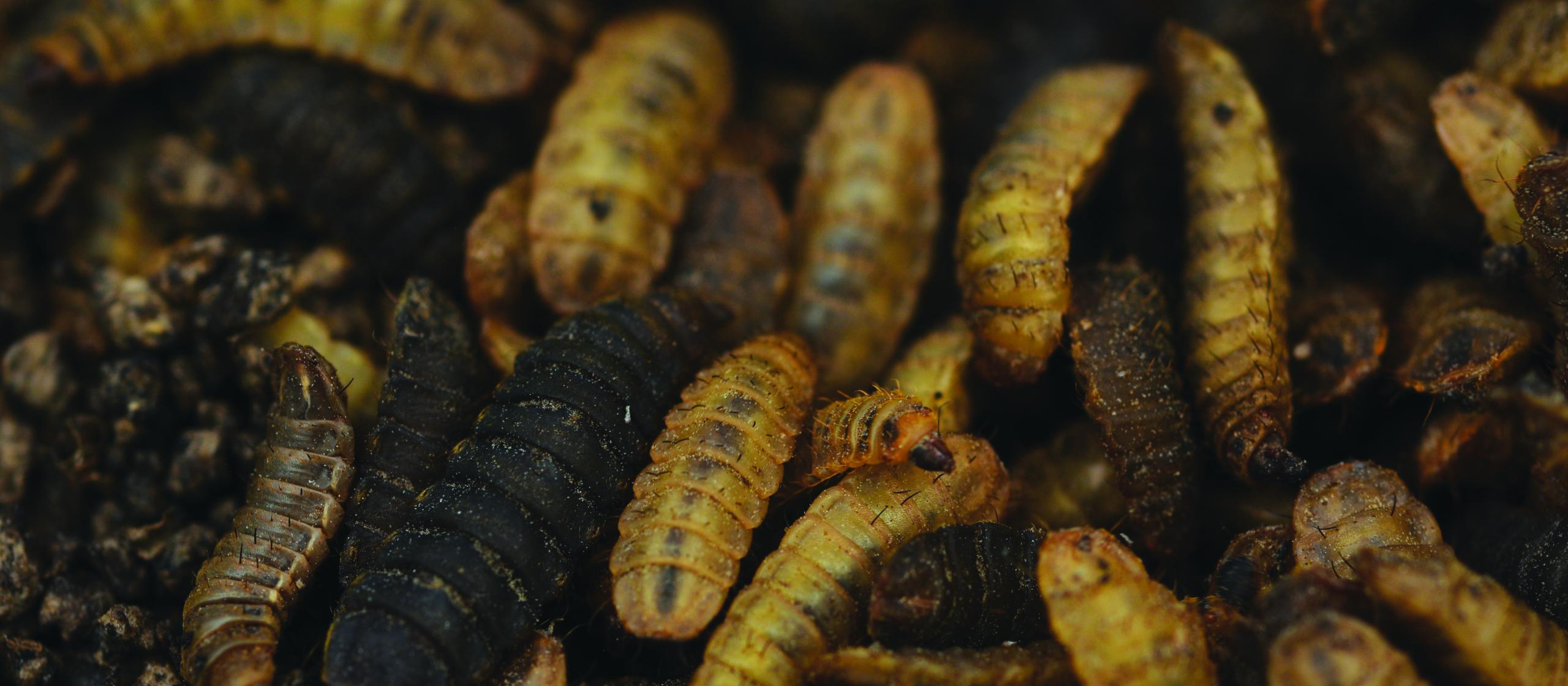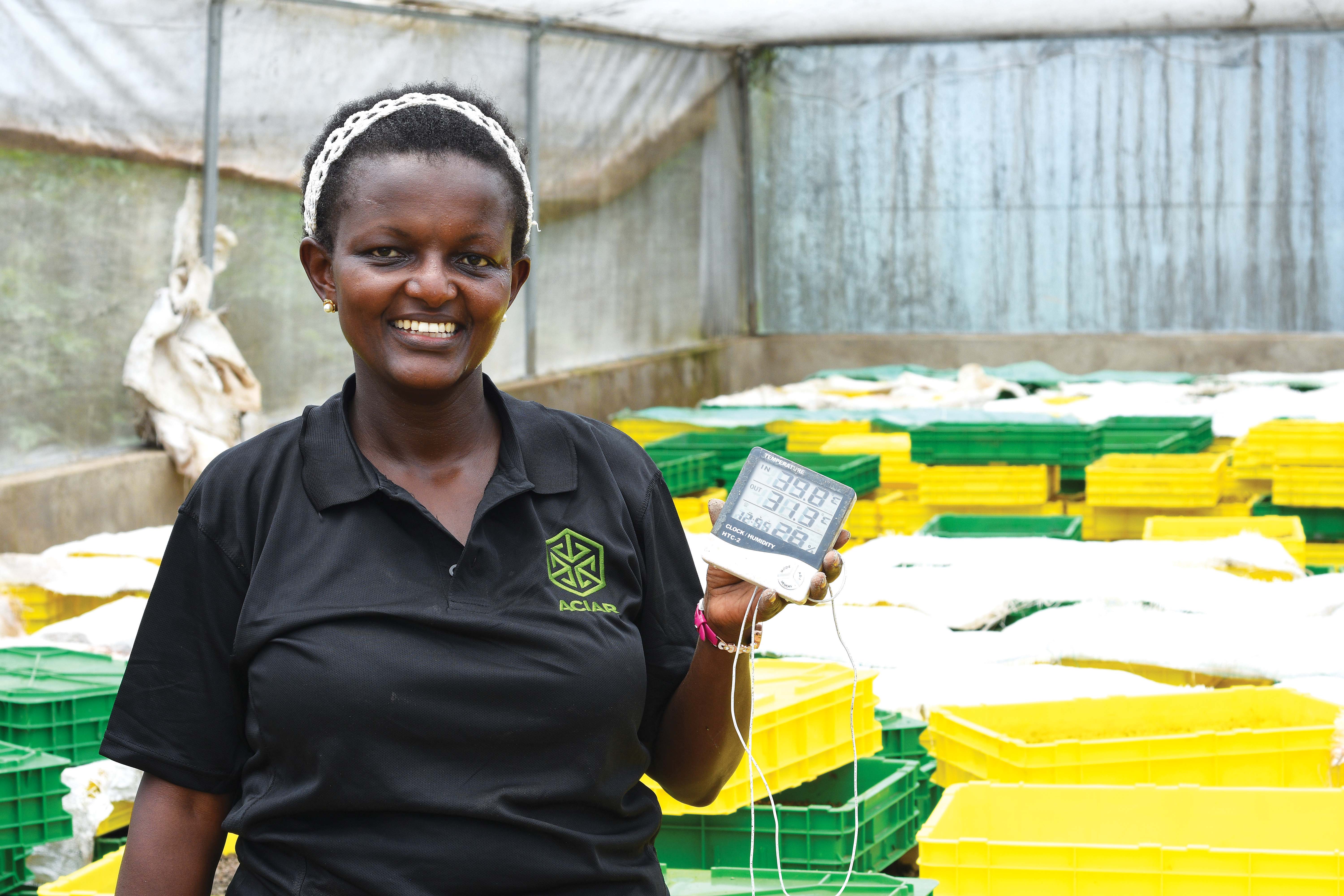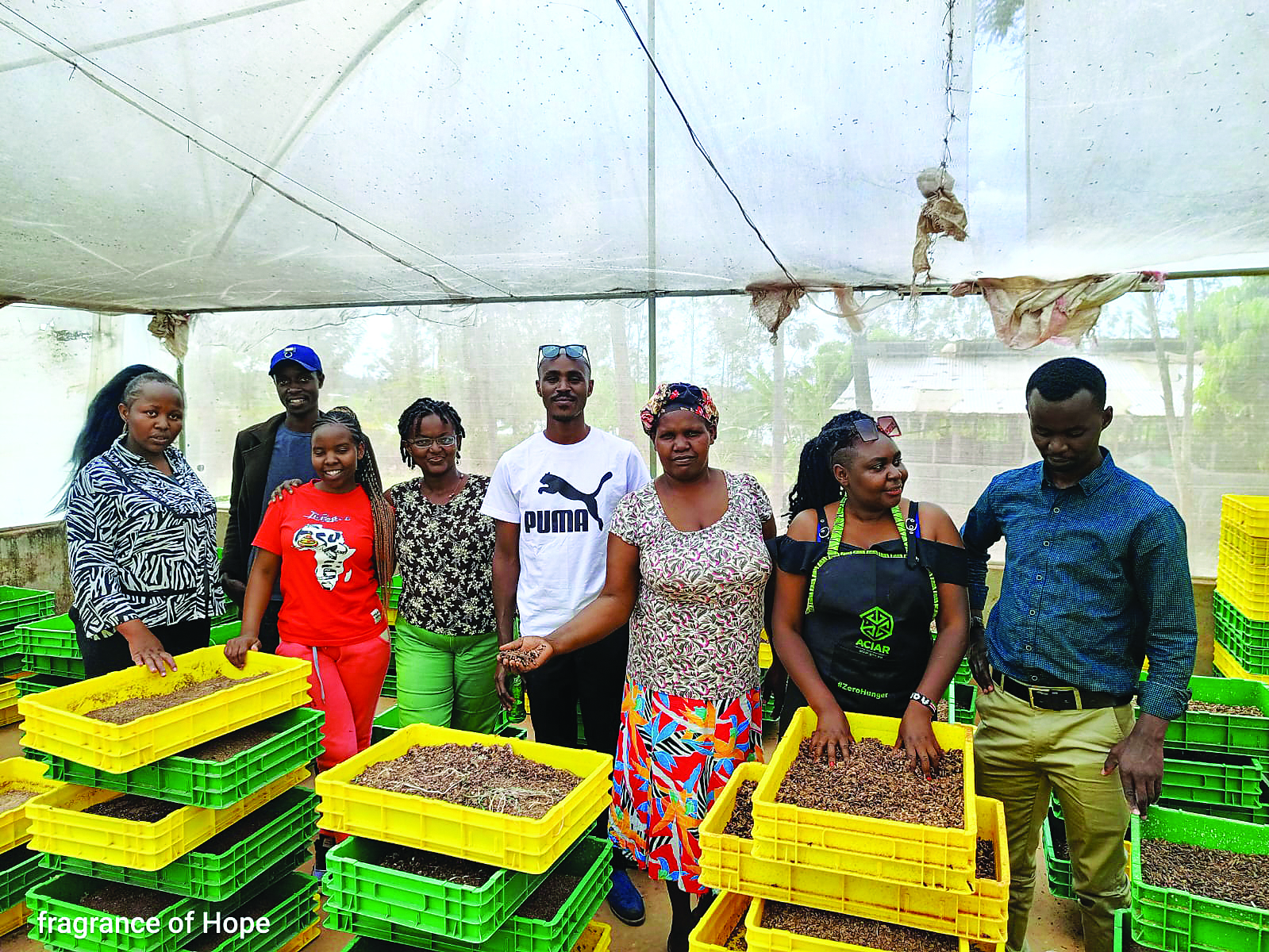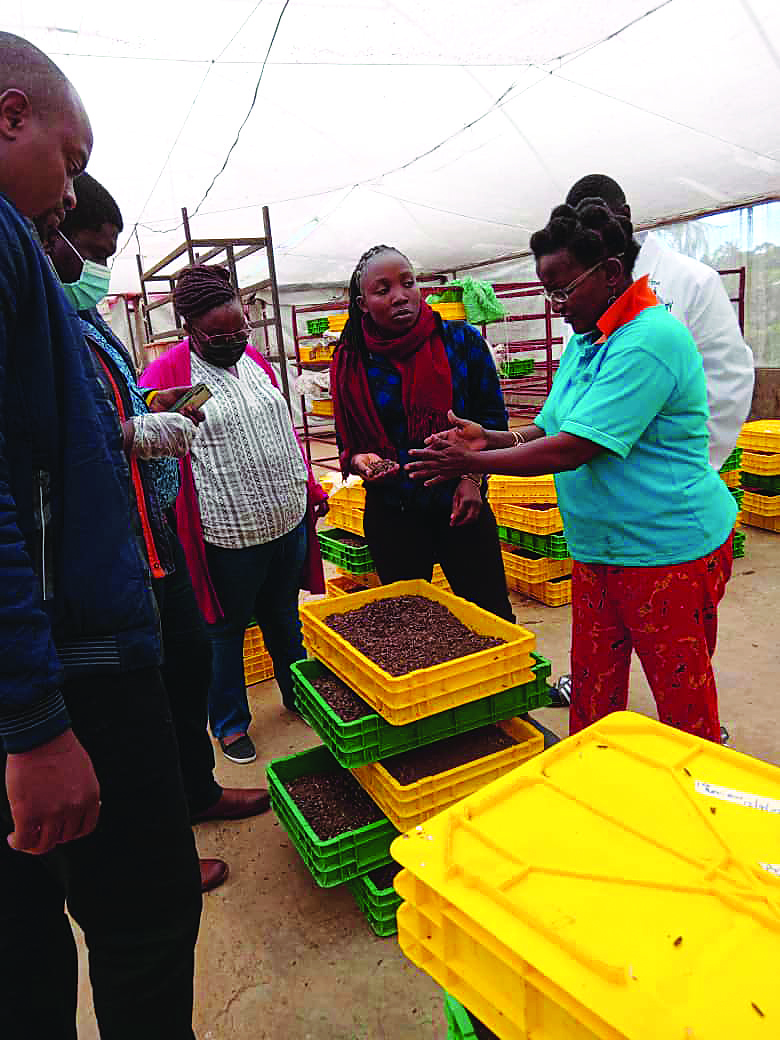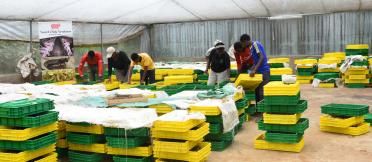Frustrated by the lack of jobs for young people in Kenya, Ms Roseanne Mwangi left her job in child and youth development to pursue new enterprises that could better support young people with business and employment opportunities.
Today she works at the centre of the circular economy, heading a dynamic company that has grown from an idea hatched 5 years ago, growing black soldier fly larvae on organic waste.
Her company, The Insectary Ltd, creates value from waste streams, and dozens of jobs in the process. And she is teaching thousands of other farmers and food producers in Kenya and other parts of Africa how to do the same.
The success of her new enterprise is largely thanks to comprehensive research into black soldier fly production by the International Centre of Insect Physiology and Ecology (icipe) in Kenya, supported by ACIAR and Canada’s International Development Research Centre (IDRC) as part of the Cultivate Africa’s Future Fund (CultiAF) project.
